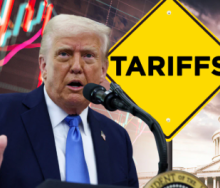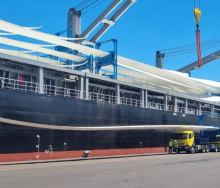While the road ahead may still present significant challenges, some of Africa’s long-standing internal trade barriers are beginning to show signs of falling, according to David Williams, Maersk Line Africa chief executive and global head of Safmarine.
He said the most recent progress in this regard was the increasing implementation of the one-stop border post concept across the continent. “While tackling trade barriers continues to be a challenge and remains a key priority going forward, in light of Africa Day, the steadfast progress in the container trade market over time across Africa is being recognised,” said Williams
Intra-Africa trade, which acts as a catalyst for growth across the continent, had seen an uptick over the past year, he added, largely due to the recovery of the oil price. “It is important to note how many African countries are still fundamentally oil-dependent, like Nigeria and Angola.”
Increased foreign investment was, however, beginning to reduce the dependency on oil for some of these countries, he added. “A prime example of this is the trend among Chinese tile exporters to ship out their machinery to establish manufacturing plants in West Africa. As construction continues to gain momentum as a result of these projects, the companies will be looking to export these tiles from one African country to another, further boosting intra-regional trade.”
Williams said that the benefits that came with increased intra-Africa trade stretched beyond just economic gain. “In addition to diversifying the African economy to a greater extent, increased intra-regional trade results in the creation of better quality employment and increased foreign investment, along with better bilateral trade – all of which will ultimately benefit the overall health of the continent and its people.”
Given the recent boost in intra-regional trade and the ripple effect of growth to be expected from this, his outlook for Africa remains optimistic. “Africa has a growing consumer market, which makes the region ripe for opportunity aimed at both locals and foreigners. As such, there has been an increasing amount of interest shown by foreign investors, as well as a growing entrepreneurial spirit spreading across the continent, which should help in shifting Africa away from its dependency on raw commodity exports by moving towards a more diversified manufacturing-based trade economy.”













